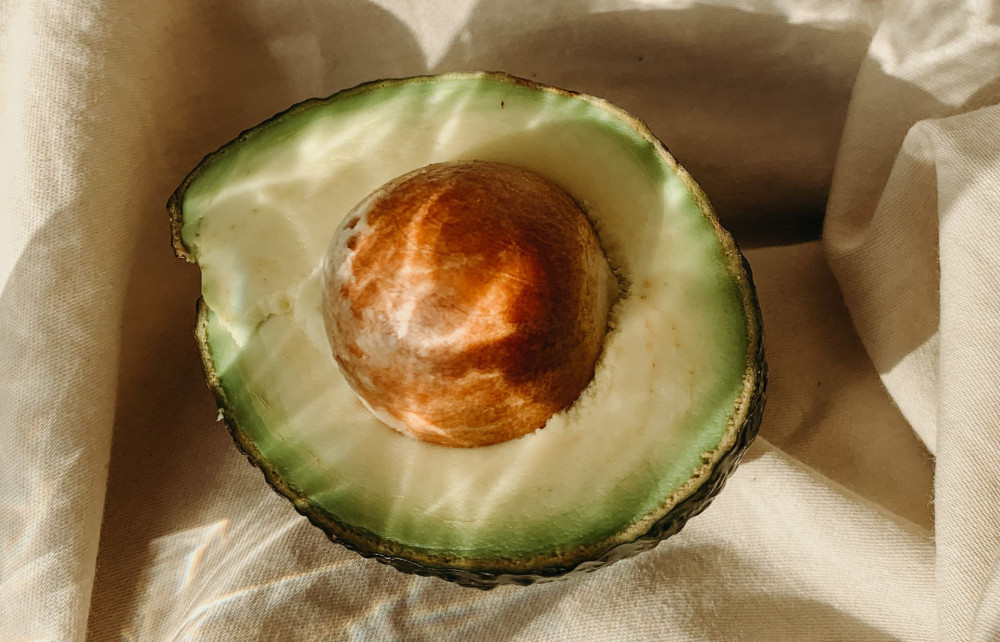
Boost your microbiome and your gut health to improve immunity
Micro what? You may have heard of it before, but you may not know what it is exactly. The microbiome is a collective term for all micro-organisms such as bacteria, viruses, and yeasts that are on and in our body. From the intestines to our skin: a healthy microbiome throughout our body ensures the right balance. Especially in our stomach and the gut, more than 500 different types of bacteria play a crucial role in our immune system.
 Our intestines have a total length of 9 meters
Our intestines have a total length of 9 meters
Did you know that your gut health determines 70 to 80 percent of our immunity? Your stomach and gut health are very important. Optimizing your microbiome can drastically improve your quality of life. But how do you start now? This article will get you started.
Which organ has the largest surface? The skin, many will think spontaneously. But that is wrong, because, with an average of 30 square meters, the surface area of the intestinal wall of the small intestine is even more impressive. And another fact for those who regularly participate in a quiz: our intestines have a total length of 9 meters, almost as long as a… badminton court. Nice facts, but above all proof of how important your gut is.
Why is your gut so important?
Your gut plays a central role in our digestive system, which has the following functions:
- Breaking down and absorbing nutrients
- The exclusion of harmful material and pathogens
- The development and function of our immune system
- Communication to the brain
- Making vitamins
- Serotonin production
An impressive list. And we cannot stress the importance of healthy digestion enough. That is why we throw in some strong figures. For example, the strength of your immune system is 70 to 80 percent dependent on your gut bacteria. Also, the gut contains more neurons (nerve cells) than our brain. The gut microbiome is home to an ecosystem that weighs 2 to 2.5 kilograms and contains a trillion (!) – a 1 with 18 zeros – of microorganisms.
The gut as our ‘second brain’
The gut microbiome plays a crucial role in our health. Due to the constant communication between the gut and brain, gut microbiota also influence all processes in our body. The brain-gut axis (also known as GBA) connects the emotional and cognitive centers of the brain with peripheral gut functions. The vagus nerve is one of the largest nerves in your body and it is no coincidence that it connects your gut with your brain. The signals go in both directions and the enteric nervous system (= the nervous system of the digestion) can even work independently of the brain. The gut is therefore increasingly seen as our ‘second brain’.
 Our guts are often called our second brain
Our guts are often called our second brain
Studies show that an imbalance of gut bacteria can affect…
- your emotions and the way your brain processes information from your senses: image, sound, taste
- feelings of anxiety and depression
- experiencing chronic pain
- the (further) development of an autism spectrum disorder
Bacteria and the composition of the microbiome also play an important role in our mental well-being. Neurotransmitters, which largely control our feelings and emotions, are produced by the gut cells and the microbiome. For example, research showed that 90 percent of the serotonin in our body is made in the stomach. Serotonin is the neurotransmitter that promotes well-being. Deficiency of it can cause depression. So if you deal with mental health issues, optimizing stomach health can be a good idea.
There are crawling 500 different types of bacteria in your gut. Good, but also less good bacteria can be found. However, when the bad bacteria take over, the chances of intestinal diseases such as irritable bowel syndrome, leaky gut, SIBO, Crohn’s disease, ulcerative colitis, chronic inflammation, depression, heart disease, and even cancer become much higher.
Our food is the big problem
The above conditions are generally common. Moreover, you would not always immediately associate them with stomach and gut health. But why is the health of our digestive system so bad? The cause of this is largely in what we eat every day.
Our western diet…
- is poor in nutrients that our gut bacteria really need
- is full of chemicals from processed foods
- contains a high content of environmental toxins
- is too high in sugars
- does not contain enough of the right fiber and prebiotics
- is rich in harmful drugs such as antibiotics, antacids, anti-inflammatories, hormones
 Alchohol is harmful for our gut health
Alchohol is harmful for our gut health
Besides food, stress can also have a negative influence on our microbiome. It is no coincidence that we speak of a “knot in the stomach” when stressful events occur. Chronic stress, for example, can lead to the leaky gut syndrome.
Do I have a healthy gut?
There are of course a multitude of different influences on your gut health. Individual differences also play a role. That does not make it easy to map out problems caused by an imbalance in the microbiome. However, the following symptoms can provide a clear indication of a disrupted microbiome and poor gut health.
 Is your gut healthy?
Is your gut healthy?
Stomach and intestinal problems
Think of typical complaints such as a distended stomach, bloating, constipation, diarrhea, flatulence…
Disturbed sleep and chronic fatigue
This is a consequence of the disruption of serotonin production. After all, serotonin promotes the formation of melatonin, the so-called sleep hormone.
Skin irritation
Skin irritation such as eczema is strongly related to an unhealthy stomach. Inflammation in the gut is mainly caused by an unhealthy diet or certain food allergies.
Autoimmune disorders
Type 1 diabetes, rheumatism, psoriasis, MS, IBD (inflammatory bowel disease), Hashimoto (thyroid disease)… These are all examples of autoimmune disorders that can be caused or facilitated by a gut microbiome in which the balance between bad and good bacteria is lost.
Leaky gut syndrome, in particular, triggered by chronic inflammation in the gut, may affect autoimmune disorders. People with the leaky gut syndrome have a bowel that is extra permeable, allowing larger pieces of undigested food to enter the bloodstream. Our immune system sees those particles as intruders, causing it to produce antibodies to attack those particles. However, those antibodies can also attack your own cells and tissues. Your weaker organs are particularly targeted.
How can I successfully rebuild my gut bacteria and gut health?
Do you regularly suffer from one or more of the above complaints? Then it can be very useful to stimulate your microbiome and to improve your gut health. Under the motto: if it doesn’t work, it doesn’t harm, healthy people also do well to improve gut health. Because we better make it very clear again: our immunity is 70 to 80 percent dependent on our gut health.
To restore and rebuild the good bacteria in the microbiome, we at Omnia selected six very effective ways to improve gut health and stimulate the gut microbiota:
Eliminate external stressors
Change your external factors such as stress and nutrition. Going through life more consciously and doing stress management can be a great help. Tackling your daily menu is also a good first step towards better health and will have a beneficial effect on the bacteria in the microbiome.
Try to avoid or limit sugar, alcohol, dairy (especially cow’s milk), gluten, trans fats, and artificial sweeteners whenever possible.
Eliminate internal stressors
Studies have shown that internal stressors such as mycotoxins and candida can also negatively influence intestinal bacteria. Mycotoxins are natural toxins created by fungus in our diet, while candida is a type of yeast that grows in the body, in the mouth for example. Normal amounts of these substances are good for our body, as they help with the digestion and absorption of important nutrients. However, too much can cause stomach problems.
We at Omnia provide the right information and support for the detoxification of the body. We do this through a diet that is adapted to individual needs. Also, we provide the right supplements.
Consume prebiotics (= food that feeds probiotics)
By consuming foods that nourish probiotics (types of bacteria that stimulate the number of good intestinal bacteria), you can restore the microbiome and promote your health.
Which products exactly? Via fermented foods such as kefir, sauerkraut, kombucha, kimchi, miso, tempeh… People who suffer from a lot of candida, better avoid fermented foods. In addition to feeding probiotics, they also stimulate candida. A good alternative can be the prebiotic fibers that we find in asparagus, bananas, chicory, garlic, onions, and artichoke.
 The right food is key
The right food is key
Avoid the unnecessary consumption of antibiotics
Antibiotics are harmful to a healthy gut. Research shows that even 6 months after use, the gut is still lacking different types of bacteria.
Improve your sleep
In general, sleep is very important for your health. The microbiome also benefits from good sleep hygiene. In another article you can read how you can efficiently improve your sleep.
Move
Movement is good to improve the diversity of your microbiome. Research proved that a sedentary person has a less diverse microbiome. 150 minutes of any kind of exercise every week, in addition to your strength exercises, is enough to see more diversity in the good bacteria in the gut. What are you waiting for?


Saturated fat vs unsaturated fat: All you need to know about fats

